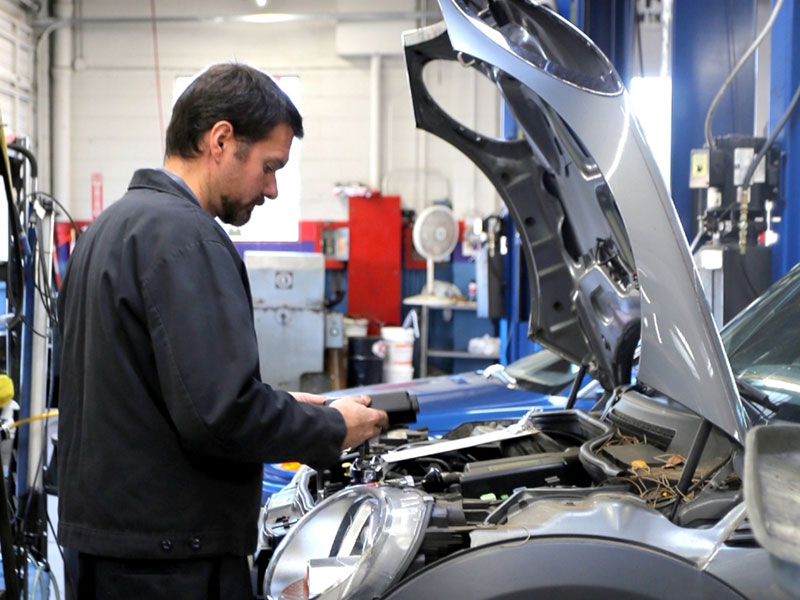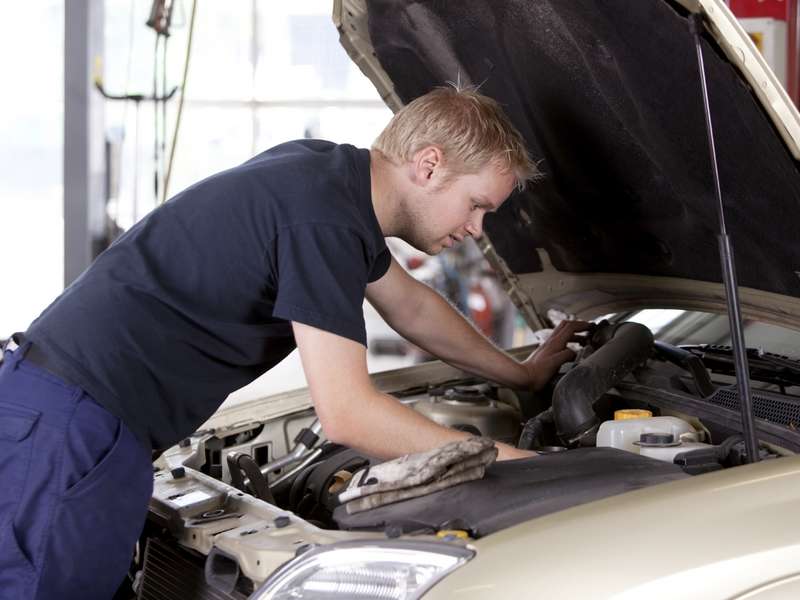
Many factors influence engine wear. Some depend on the driver and others on the quality of the equipment or fuel. To keep your engine in good condition, you need to take good care of it.
Driving style
The way the car is used on a daily basis has a significant impact on engine life. In order for the vehicle to be able to drive as many kilometres as possible, it is worth following several rules directly related to the chosen driving style.
How to take care of the engine?
First of all, you should treat the accelerator pedal gently when starting a cold engine. After a night stop or a longer break in the car, it is worth waiting for the unit to warm up to the right temperature. In order not to overstress the engine and obtain optimal parameters, the oil should be about 100 degrees and the coolant should be 90. Instant starting of a cool engine is a common problem, especially among young drivers, so it is worth showing composure.
Special treatment is also required when the engine is already warmed up. More and more petrol and diesel models are equipped with a turbocharger. When driving steadily and for a long time at relatively high speed on the motorway, the engine temperature can gradually rise.
In such a situation, it is not advisable to switch off immediately upon arrival. If possible, the engine should be cooled down before switching it off, preferably driving a short stretch of road a little slower and calmer. This will allow the engine to use the air rush to cool down.
Correct lubrication
Another factor that affects engine wear and tear is lubrication. This aspect affects not only its lifetime, but also the comfort and convenience of driving. It is important to take care of proper selection of both oil and fuel.
Engine oil
In order to keep the engine in good condition, it is particularly important to use properly selected oil, preferably of the highest quality. This agent should be uncontaminated and fresh. The oil ages not only on the road and after hundreds of kilometres, but also due to temperature changes and seasons. It is therefore very important to replace the oil in the engine on a regular basis, taking into account the time of the last change or the current mileage.
It is worth changing the oil at least every 8000 kilometres or systematically every year, depending on the occasion. If a car covers a smaller distance within a dozen or so months, it should still be replaced due to its age. However, lubrication is not only a matter of oil. Fuel also has an impact on the service life and good condition of the engine.
Fuel quality
Basically, the newer the engine model, the higher the requirements for fuel quality. Nowadays, the best solution is to use modern fuels with active particle technology, which comprehensively take care of the engine condition. They can extend the life of the engine and clean it, which further reduces operating costs.

Active particles lubricate individual components of the structure which are subject to gradual wear and tear, as well as adhere to individual impurities and effectively extract them. They prevent deposits from forming on the most important parts of the engine, thus increasing engine life. Modern engines are becoming more and more complex and complex and therefore require fuel that meets their specific needs.
However, there is no need to fill up with the most expensive premium fuels, although they provide increased range on a single tank, for example. Regular refuelling with any fuel with active particle technology allows you to effectively take care of your vehicle’s engine, which will therefore run trouble-free.
Preventing engine damage
In order to take good care of the engine, potential malfunctions must be prevented. This can be achieved by paying a little more attention to other vehicle components. In addition, nothing affects the condition of the engine as much as regular servicing.
In order to take good care of the engine, potential malfunctions must be prevented. This can be achieved by paying a little more attention to other vehicle components. In addition, nothing affects the condition of the engine as much as regular servicing.
Cleaning the particulate filter
Particle filters are responsible for removing soot from unburned fuel.
You can distinguish between them:
- DPF dry particulate filters
- FAP wet particulate filters
They are installed in cars with diesel engines, due to the introduction of certain standards related to the permissible emissions. If the particulate filter is not cleaned regularly, it is very possible that it will clog up. This usually occurs when the vehicle only drives in the city and does not reach higher speeds on subsequent routes.
In the meantime, the filter can only be cleaned when driving fast and long enough. So if a FAP filter is installed in the vehicle, it is worth filling up with more fuel. The on-board computer selects the amount of liquid for soot firing that matches the amount of fuel in the tank. If the filter is clogged, it is possible to damage the engine and cause many other costly damages. Often the most economical solution may be simply to remove the particulate filter.
Engine servicing
Adhering to the basic principles of driving style, changing oil regularly and filling up with good quality fuel is not always enough. The engine is a very complex construction, so its overall performance is often determined by a single detail. Diagnostics may require all the weakest points of the unit and, if necessary, servicing. In newer models, even the software often needs attention, as it is the computer that is responsible for the correct and smooth operation of the engine.
New cars and those still under warranty should be checked at the ASO, i.e. the Authorised Service Station. Well-qualified mechanics are able to detect all unwanted errors to the engine by connecting the car to the diagnostic computer. Older units usually require a visit to a trusted and experienced mechanic who will take care of the mechanical condition of the engine.
To sum up, you can also mention cases in cars with gas installation. A very important thing is to replace the filters, but this time the gas filters should be replaced during periodic inspections, which should be performed on average every 10 000 – 20 000 km. Such diagnostics should be carried out in an authorized workshop, where the tightness of the installation, condition of components and the like are also checked.
